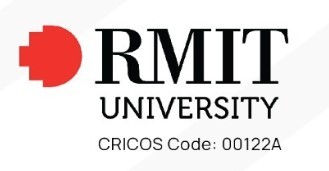
Master of Engineering (Environmental Engineering)


Overview
Duration
FULL-TIME 2 YEARS
FULL-TIME 2 YEARS
Scholarship
YES
YES
Fee
AU$44,160
AU$44,160
Intake
FEBRUARY, JULY
FEBRUARY, JULY
Overview
- The Master of Engineering (Environmental Engineering) will develop advanced knowledge and skills in environmental engineering to enhance your career prospects in relevant industries.
- You will develop specialist technical capabilities in:
- water treatment engineering and water resource systems optimisation
- advanced technologies for wastewater reclamation
- urban hydrology
- soil remediation
- humanitarian engineering
- sustainable waste management in the context of circular economy.
- You'll develop extensive knowledge in environmental engineering and related technologies combined with advanced oral and written communication, teamwork, process design, project management and research skills. You will enhance your professional skills in management, leadership and business enterprise.
- You'll also gain skills that will allow you to step up as a project leader, consultant or manager with the knowledge to lead the introduction of new technologies and operating practices in environmental engineering.
Inquire Now
Career
- Previous RMIT graduates have gone onto work at companies such as:
- Water companies such as Melbourne Water, City West Water
- Consultancies
- Industry including manufacturing and construction
- Environmental engineers work on projects including environmental impact studies, energy conservation, sustainability, pollution control and humanitarian engineering.
- There is a growing need to understand better and more effectively integrate the environmental factors that are part of modern living. Environmental engineers will play an important role in achieving this balance.
- Graduates of the Master of Engineering (Environmental Engineering) will be sought in Australia and overseas, mainly Southeast Asia and East Asia. There is steady employment of environmental engineers in Australia in the water and hydrology sectors, land remediation, construction, infrastructure and mining industries.
Entry requirement
- To study this course you will need to complete one of the following English proficiency tests:
- IELTS (Academic): minimum overall band of 6.5 (with no individual band below 6.0)
- TOEFL (Internet Based Test - IBT): minimum overall score of 79 (with minimum of 13 in Reading, 12 in Listening, 18 in Speaking and 21 in Writing)
- Pearson Test of English (Academic) (PTE (A)): minimum score of 58 (with no communication band less than 50)
- Cambridge English: Advanced (CAE): minimum of 176 with no less than 169 in any component.
Popular Courses
Start your journey with landmark today!
Find your perfect course
Answer a few questions and
our course matcher will do the rest
Head Office
Level 5, IT Plaza
Kamaladi, Kathmandu
Tel: +977 14542781, 9845566225
E-mail: info@landmarkedu.com
Kamaladi, Kathmandu
Tel: +977 14542781, 9845566225
E-mail: info@landmarkedu.com
Sydney office
Suite 1 Level 1,
46 Macquarie Street,
Parramatta, NSW
Tel: +61 415 122 814
46 Macquarie Street,
Parramatta, NSW
Tel: +61 415 122 814
Branch office
Sahidchowk, Chitwan
Tel: 056-590825
Tel: 056-590825
Mahendrachowk, Biratnagar
Tel: 021-590828
Tel: 021-590828
Level 2, Milanchowk, Butwal, Rupandehi
Tel: 977-71-591694
Tel: 977-71-591694
© Landmark Education. All rights reserved.


